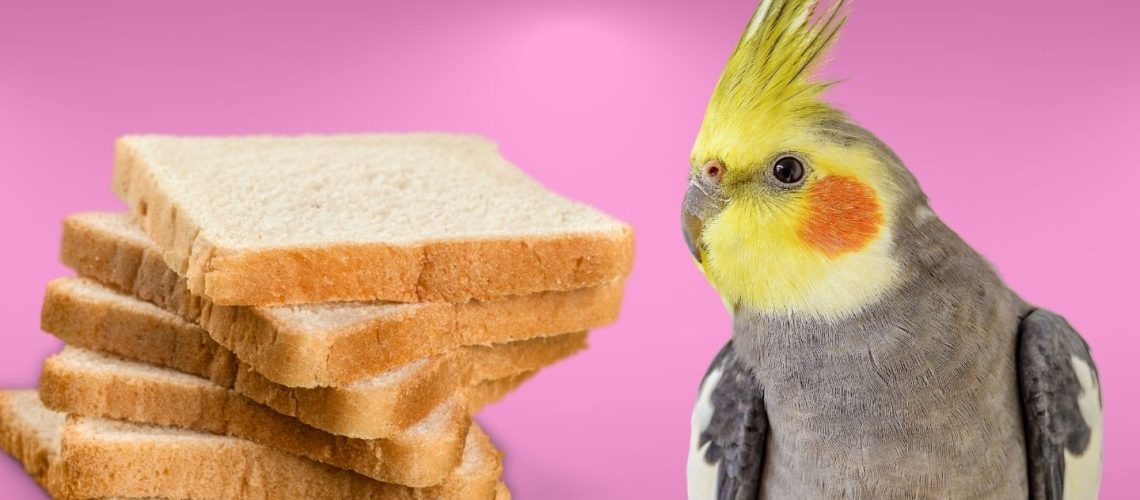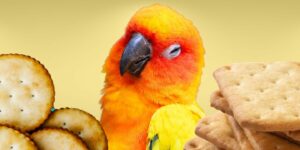The short answer to the question of whether birds can eat bread is that, while it is not harmful to birds, it is not the best food for them and should not be a staple in their diet. It's essential to understand bird diets and feeding habits, as they have significant implications for bird health and the environment. In this article, we'll explore the nutritional content of bread, the health issues associated with birds eating bread, the environmental impact, and safe and nutritious alternatives to feeding bread to birds.
The Nutritional Content of Bread
Carbohydrates
Bread is high in carbohydrates, which can provide energy to birds. However, it lacks many of the essential nutrients that birds need for optimal health.
Lack of essential nutrients
Bread does not contain the essential proteins, fats, vitamins, and minerals that birds require to maintain their health. These nutrients are crucial for birds' growth, reproduction, and overall well-being.
Comparison with natural bird food sources
Natural bird food sources, such as seeds, fruits, insects, and vegetation, offer a complete and balanced diet for birds. In contrast, bread does not provide the required range of nutrients and can lead to an imbalanced diet.
Health Issues Associated with Birds Eating Bread
Malnutrition
Feeding birds bread can eventually lead to malnutrition, as it fails to provide necessary nutrients. Malnourished birds are more susceptible to disease, have reduced lifespans, and may struggle to reproduce successfully.
Obesity
Bread's high carbohydrate content can contribute to obesity in birds, particularly if they consume it regularly. Obesity can negatively impact a bird's ability to fly, escape predators, and reproduce.
Digestive problems
Birds' digestive systems are not well adapted to process large amounts of bread. Consuming excessive amounts can lead to bloating, diarrhea, and other digestive issues.
Impact on bird behavior and reproduction
Bread can affect birds' natural feeding behaviors and suppress their instincts to forage for a variety of foods. This can disrupt their mating and nesting habits, leading to reduced reproductive success.
The Environmental Impact of Feeding Bread to Birds
Attracting pests and vermin
Feeding bread to birds can attract pests and vermin, including rats and mice, which can spread diseases and disrupt the local ecosystem.
Uneaten bread and water pollution
Uneaten bread left outdoors can rot and contribute to water pollution, leading to the growth of harmful bacteria and algae in water bodies. This can be particularly harmful to aquatic animals and bird populations that rely on these water sources.
Impact on the ecosystem and bird populations
Feeding bread to birds can disrupt the natural balance of ecosystems by encouraging overpopulation of certain bird species while discouraging others. This can have widespread consequences for local environments and wildlife.
Safe and Nutritious Alternatives to Bread for Birds
Seeds and grains
Offer birds a variety of seeds and grains, such as sunflower seeds, millet, and cracked corn. These provide essential nutrients and a natural source of energy.
Fruits and vegetables
Fruits and vegetables, like apples, berries, and leafy greens, provide vitamins and minerals that support bird health.
Insects and mealworms
Insects and mealworms are a critical source of protein for many bird species and are a natural part of their diets.
Commercial bird food options
Commercially produced bird food, such as seed mixes and suet cakes, are specifically formulated to meet the nutritional needs of various bird species.
Responsible Bird Feeding Practices
Avoiding overfeeding
Feed birds in moderation, providing only small amounts of food and ensuring that it does not become a primary source of their nutrition.
Providing clean and fresh food
Always provide clean and fresh food to avoid spreading diseases among bird populations.
Proper food storage and hygiene
Store bird food in a cool, dry place to maintain its quality and reduce the risk of mold and bacterial growth.
Monitoring bird populations and adjusting feeding habits
Observe local bird populations and adjust your feeding habits as necessary to avoid negatively impacting the ecosystem.
Educating Others About Bird Nutrition and Feeding
Sharing information with friends and family
Share your knowledge about bird nutrition and responsible bird feeding practices with friends and family to promote better care for bird populations.
Community involvement and local bird feeding guidelines
Participate in local community initiatives and follow guidelines on bird feeding to ensure the well-being of local wildlife.
Supporting bird conservation organizations
Support and engage with bird conservation organizations to stay updated on best practices and help protect bird populations.
Conclusion
Bread is not harmful to birds, but it is not a suitable food for them and should not be a significant part of their diet. Responsible bird feeding practices, coupled with a balanced diet, are essential for maintaining healthy bird populations. Encourage continued education and responsible bird feeding practices to ensure the long-term welfare of our feathered friends.



